Area of a Figures having Irregular Shapes
Area of a Figures having Irregular Shapes: Overview
This topic covers concepts such as estimating area of different shapes using square paper, finding area of irregular shapes, area of general polygon, triangulation of a polygon, and method to find area of a polygon by triangulation.
Important Questions on Area of a Figures having Irregular Shapes
Some of the measures are given in the adjacent figure. Find the area of the quadrilateral
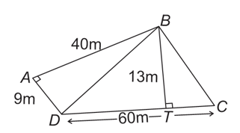
Estimate the area of the following shape by using square graph paper.

The diagonal of a quadrilateral-shaped field is and the perpendiculars dropped on it from the remaining opposite vertices are and . Find the area of the field by the method of triangulation.
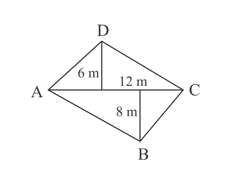
Find the area of the regular pentagon given below by the method of triangulation.
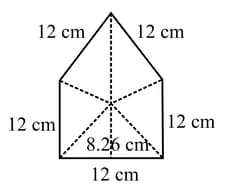
Find the area of the below polygon by the method of triangulation.
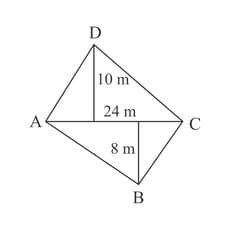
Look at the picture, Can you divide the figure into four equal parts. How many squares are there in each part?
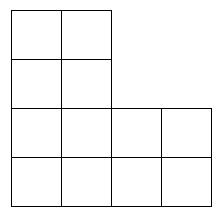
Shown below is rhombus
Its diagonals, and
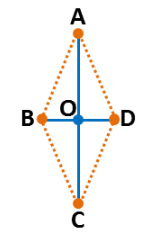
What is the length of its side ?
A goldsmith took the measurements around a Ruby stone and found it to be 12cm. What is this measurement?
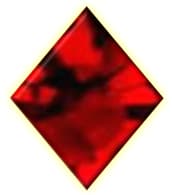
Raju drew a Rhombus of side ‘a’ cm. His teacher told him to increase the side to 4 less than twice the current size. What will be the perimeter of the new rhombus?
The diagonals of a rhombus are and . The area of the rhombus is equal to
The area of a rhombus whose diagonals are and is equal to
An auditorium hall is in the shape of a rhombus such that the lengths of the two diagonals of the hall are and . Find the cost of painting the floor at the rate of .
Find the area of figure if the area of each square
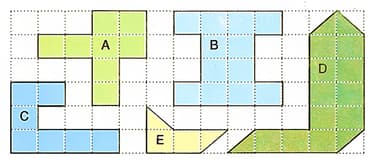
Find area of figure A if area of each square = 1 m2

Find the area of triangle if the area of each square

Find area of triangle if the area of each square
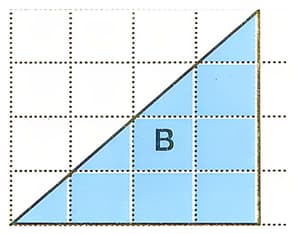
Find the approximate area of the shape below. Take the area of each small square to be .
(A whole number without the unit is expected in the blank)
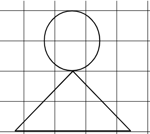
If the area enclosed in the shape is then find the value of . Take the area of each small square as .
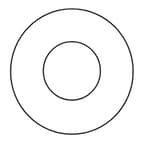
Find the approximate area of the shape below. Take the area of each small square to be . (A whole number without the unit is expected in the blank)

Find the area of the below regular shape. (Hints: Each small square is of area)
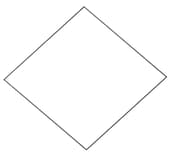
If the area is , then find the value of .
